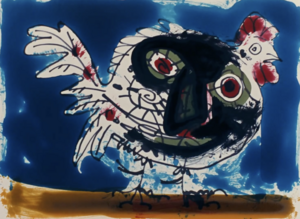Improv for Storytelling
Facilitated by Sabine Groenewegen with guest lecturer Simon Lukacs.
Improv is a form of theatre in which the performance is unplanned or unscripted. The material is created spontaneously and collaboratively by the players, unfolding in the present time. The fact that there is no script doesn’t mean there is no structure to what happens between players on the stage. There are guiding principles that set the parameters for this spontaneity to function effectively in relation to a live audience. Practicing improv means working collaboratively to unfold dialogue, action, story, and characters. Jumping into that real-time action generates an embodied and intuitive understanding of key elements of storytelling. Improv can help you develop creative tools that reach far beyond the platform of comedy or theatre and can be applied by storytellers and artists across different forms of narrative work.
During the thematic Improv for Storytelling, we will explore the principles of improv in two sessions of three days. During the, we will work with a professional improv performer and teacher to get familiar with the basics. We will review contemporary media beyond the theatre stage whose creators make use of improv techniques. We will also explore improv techniques for short writing exercises.
In the second part of the seminar, we will explore improv techniques to develop writing further, generate processes of collective creation, and strengthen directorial techniques.
Dates Part 1
10 October 13:00 - 17:00
11 Oct 10:30 - 17:00
12 Oct 10:30 - 17:00
Dates Part 2
5 February 13:00 - 17:00
6 February 10:30 - 17:00
7 February 10:30 - 17:00

